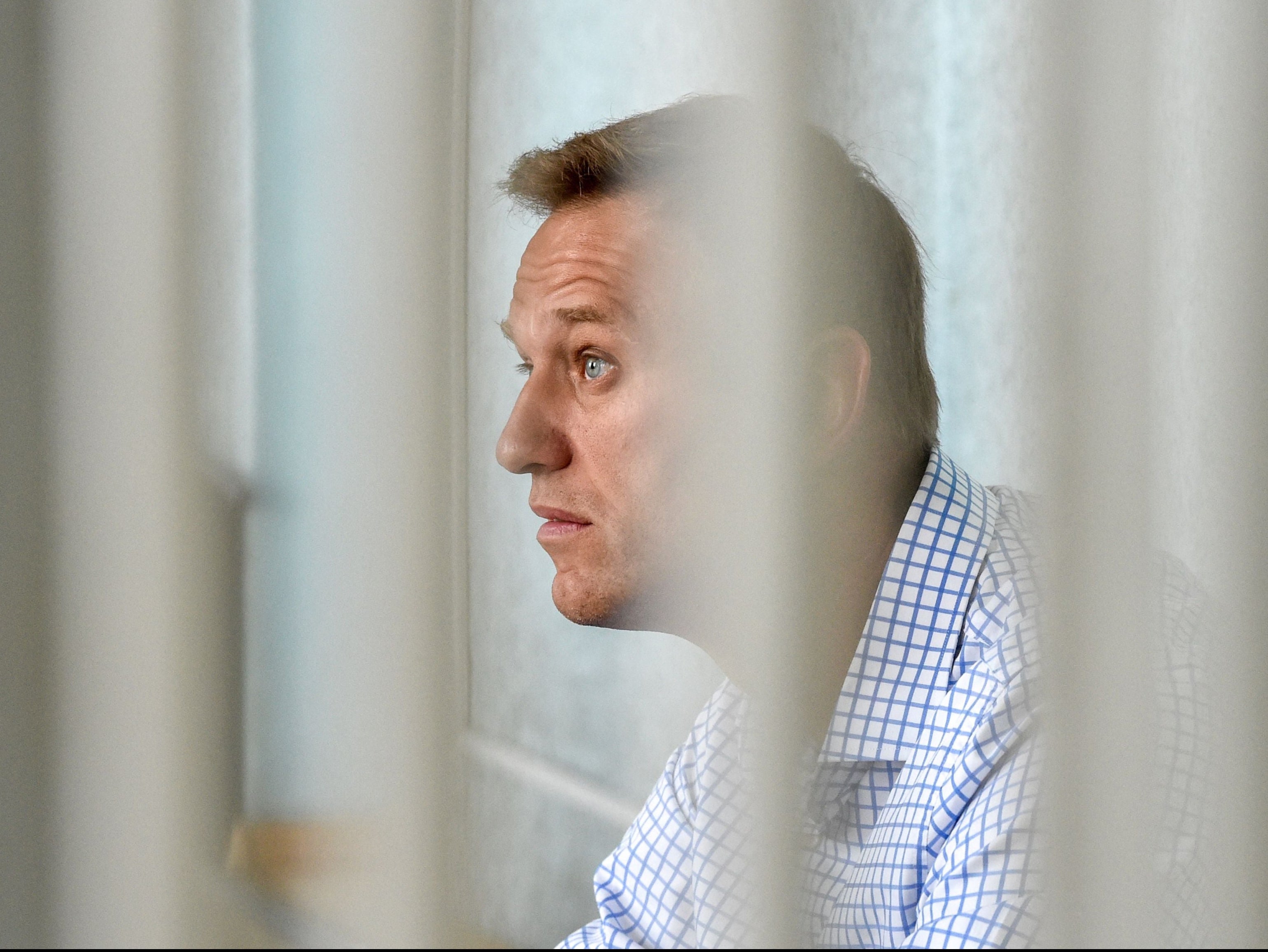Putin critic Navalny ‘will not be allowed to die in prison’ says Russian ambassador as daughter pleads for doctor
‘We don’t know how long he can hold on’, top strategist for Kremlin critic says. By Vincent Wood


Reports of the deteriorating health of Alexei Navalny, the imprisoned critic of Vladimir Putin, have led to calls for protest in the country as well as international condemnation.
Associates of the opposition politician have said his life “hangs in the balance” as Mr Navalny goes on hunger strike over his lack of access to independent medical treatment - a provision offered to prisoners under the Russian penal code.
“We don’t know how long he can hold on. But it is clear we do not have time”, Leonid Volkov, a top strategist for Mr Navalny, said amid calls for a mass protest in Moscow and St Petersburg on Wednesday.
Mr Navalny, who was treated in Germany for Novichok poisoning before his imprisonment in Russia, has complained of suffering severe back pain and loss of feeling in his legs.
A doctor said on Saturday that test results he received from Mr Navalny’s family showed sharply elevated levels of potassium, which could lead to cardiac arrest, and signs of kidney failure.
“Our patient could die at any moment,” the doctor, Yaroslav Ashikhmin, said.
On Sunday several doctors went to the prison colony about 60 miles east of Moscow where Mr Navalny is serving his sentence, but were not allowed in to see him.
“It’s cruel and monstrous to deny access to a dying patient,” Anastasia Vasilyeva, the head of a Navalny-backed doctors’ union, said outside the prison.
Mr Navalny’s daughter Dasha, a student at Stanford University, made an appeal on Twitter on Sunday - writing “Allow a doctor to see my dad”.
UK officials have urged the Kremlin to allow Mr Navalny access to independent medical care after persistently voicing concerns over the poisoning and subsequent detention of the Putin critic.
“The UK is deeply concerned by reports of the unacceptable treatment of Alexey Navalny and the continued deterioration of his health” a foreign office spokesperson said in a statement.
“Mr Navalny must be given immediate access to independent medical care. We reiterate our call for his immediate release from his politically motivated imprisonment
However, Moscow’s ambassador to London attempted to play down health concerns in an interview with the BBC aired on Sunday, claiming that Mr Navalny was faking his illness.
Asked if the Russian government was prepared to let Mr Navalny die in prison by Andrew Marr, ambassador Andrei Kelin said: “No, and of course he will not be allowed to die in prison, but I can say that Mr Navalny behaves like a hooligan in trying to violate every rule that has been established”.
Meanwhile in the US National security adviser Jake Sullivan told CNN television that the United States is concerned about Navalny’s health.
“We have communicated to the Russian government that what happens to Mr. Navalny is their responsibility and they will be held accountable by the international community,” Sullivan said. “We have communicated that there will be consequences if Mr. Navalny dies.”
"We call on the Russian authorities to grant him immediate access to medical professionals he trusts," European Union foreign policy chief Josep Borrell said Sunday. "The EU will continue to call for his immediate and unconditional release as we consider his sentencing politically motivated and running counter to Russia's international human rights obligations."
Mr Navalny was arrested on 17 January when he returned to Russia from Germany, where he spent five months recovering from poisoning with a Soviet era nerve agent that he blames on the Kremlin.
Russian officials have denied any involvement and questioned whether Mr Navalny was poisoned, although several European laboratories confirmed that he was sickened with a Novichok nerve agent.
Mr Navalny was ordered to serve two and a half years in prison on the grounds that his long recovery in Germany violated the terms of a suspended sentence he received for a fraud conviction in a case that Mr Navalny says was politically motivated.
Additional reporting by agencies
Join our commenting forum
Join thought-provoking conversations, follow other Independent readers and see their replies
Comments